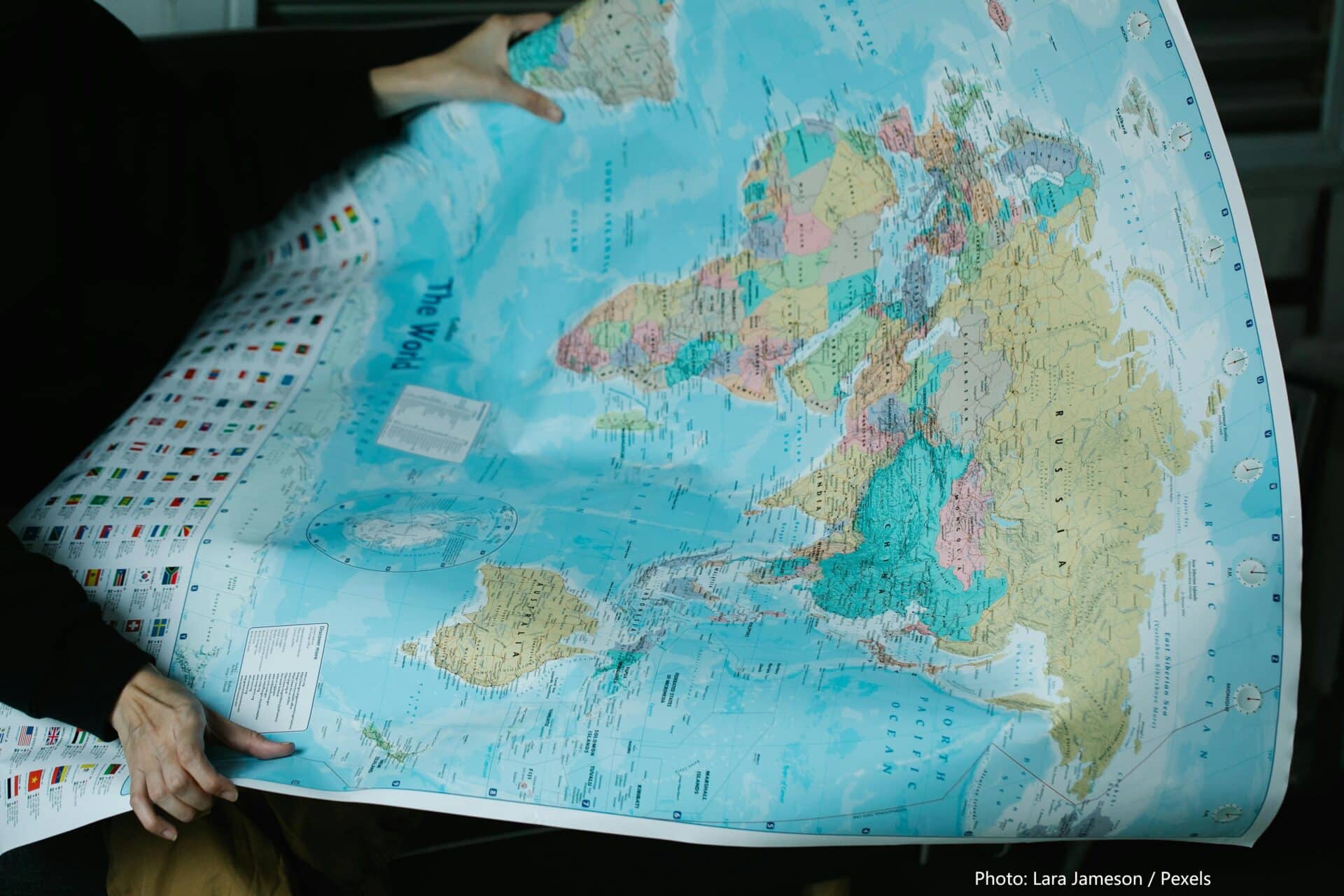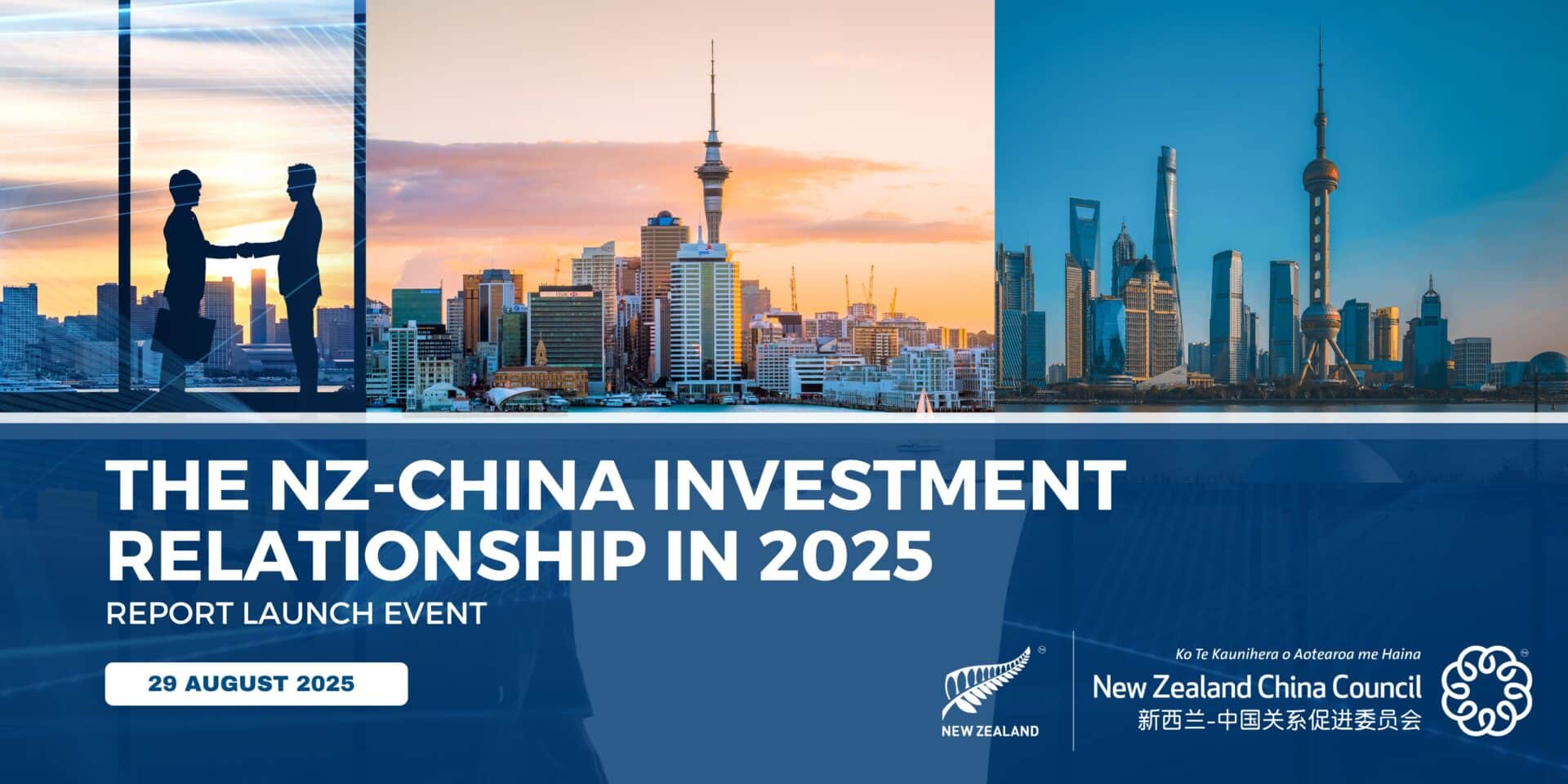Finding our place between America and China – NZCC Chair op ed
This article by New Zealand China Council Chair John McKinnon was published in The Post on 15 July 2025. The original article can be viewed here.
Over ten years ago I wrote an article with this title.[1] The points I made in that essay are still valid, maybe even more so than in 2013. Why? Because the quality of the relationship between the United States and China is still a major factor in shaping New Zealand’s external environment, maybe even more now than then. What does that mean for this country, and how should we respond to it?
First, both countries will be present in our region for as far ahead as we can see. Whether that region is named Indo-Pacific or Asia-Pacific is less important than that both the United States and China have a long history in the region. One consequence of this is that they each have close links with other regional countries, including New Zealand.
Second, our relations with both of these countries are of a very different character, but equally significant. With the United States we have a shared inheritance of language, law, democracy, common values and a long history of joint involvement in the international community, whether on the battlefield or the conference table. With the People’s Republic of China our relationship is much more recent, and reaches across a large cultural divide, but despite that, it has acquired depth and breadth.
Both countries are major markets for New Zealand businesses. In both we have to be sensitive to the political realities which shape them.
I used a ‘mirror imaging’ metaphor in the 2013 article. Our very deep shared heritage with the United States has not prevented differences occurring. And with China, while both sides recognise the divergences between us, we have been building a “comprehensive strategic partnership”, so named when Xi Jinping visited New Zealand in November 2014.
Third, it follows that any suggestion that we must choose between these relationships is anathema, and unrealistic to boot. We have to work out for ourselves how to manage these relationships, bilaterally and collectively. That means that, tempting as it may be, our policies towards both the United States and China have to be crafted here, and not elsewhere. That does not mean ignoring their views, or the views of our partners. But there will be occasions on which we do not agree with them, or may not share the same perspective, and there may even be occasions on which we have to say so publicly.
This will not always be comfortable, but not doing so risks betraying both our interests and our values.
Many on both sides of the Pacific would say that the United States and China are now strategic competitors. There is even talk of a new cold war. It may be that there is an inevitability about such competition. But what must be less inevitable is a ‘cold’ war turning hot, and with the protagonists blaming each other for such an outcome.
Any conflict, however caused or prompted, would be unwelcome to New Zealand. Negotiation and diplomacy, even if tedious and lengthy, are much to be preferred. Both the United States and China, as great powers and as permanent members of the United Nations Security Council, have heavy responsibilities, separately and together, for international peace and security.
It is evident that there is a deficit of trust between the two countries. Rebuilding that is crucial. Recent talks on trade suggest that it is not inconceivable that the two sides will find ways to engage. The views and policies of countries such as ours can encourage that process.
Recognising that structural sources of competition between the United States and China cannot be eliminated, and certainly not by third parties, we can at least argue that the span of ‘non-structural’ issues should be widened as much as possible, and ways found to address them.
And we are not the only country which is facing this predicament. The member states of ASEAN and the island nations of the South Pacific are in much the same circumstance. We may approach this circumstance differently, but we all benefit from the international rule of law, open regionalism, and the ability of all countries, large and small, to make their way in the world without fear or favour.
Neither containment nor exclusion work for us.
[John McKinnon is chair of the New Zealand China Council. He has served twice as New Zealand’s ambassador in China. He has also been posted to New Zealand missions in Washington, Canberra, and New York. The views in this article are his own.]
[1] It was published in the New Zealand International Review Vol 38 No 6 (Nov/Dec 2013).












 MENU
MENU
